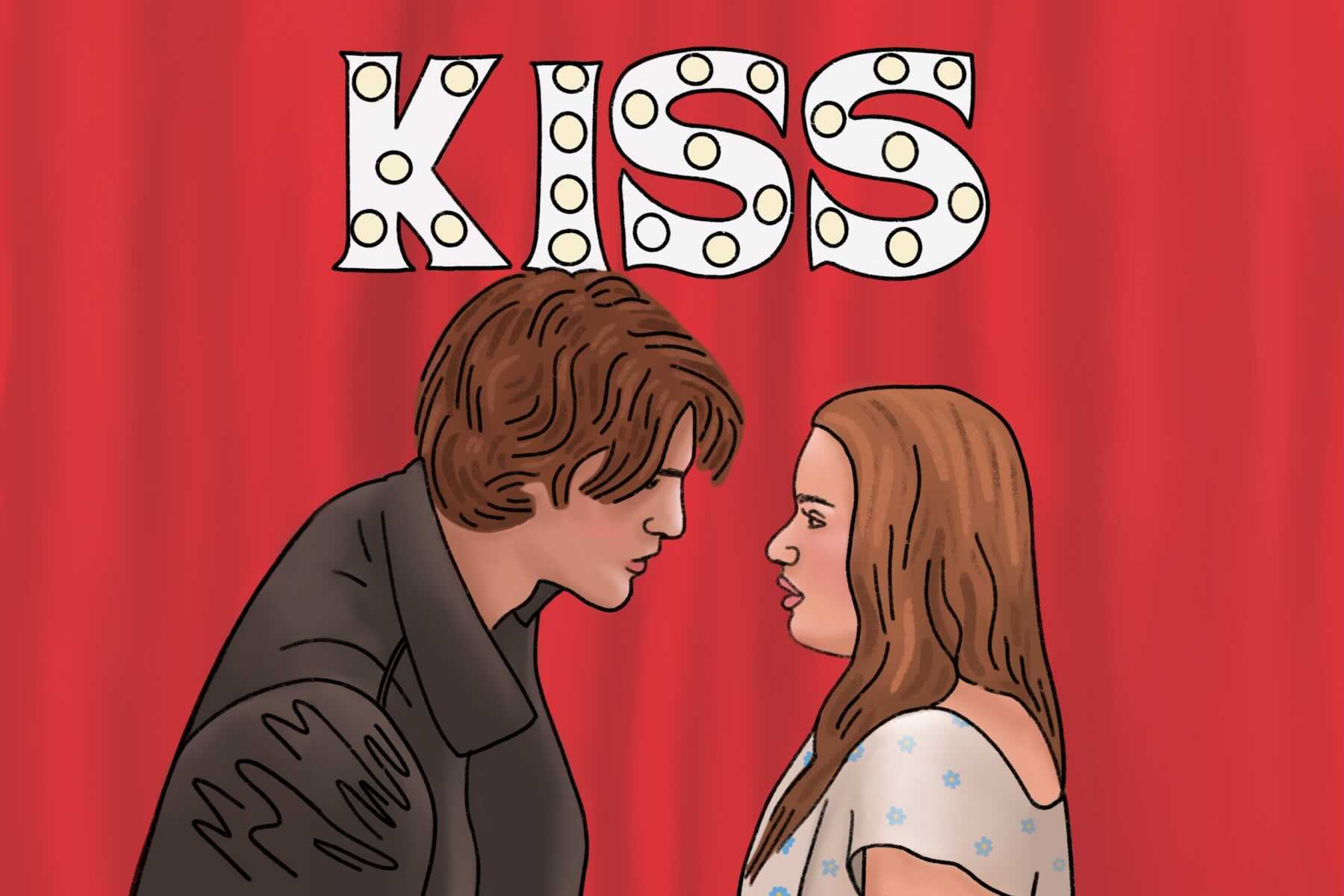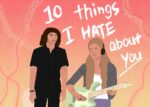“If I saw this in theaters, I would want my money back.”
Thus spoke my friend Oliver upon sitting through the cinematic catastrophe that is the 2018 film “The Kissing Booth.” The rom-com starring Joey King and Jacob Elordi squeezes every romantic trope in the book into an emotionally threadbare script, leaving even the most devout rom-com junkies thoroughly disappointed.
In the past three years, no less than three installments of the “Kissing Booth” franchise have been released on Netflix, despite the first film garnering a whopping 15% on Rotten Tomatoes. The film details the misadventures of LA high schooler Elle as she navigates a budding romance with her best friend’s brother. In planning a kissing booth for a school fundraiser, late bloomer Elle finds herself locking lips with the elder brother of her lifelong best friend Lee. This mishap precipitates a secret romance between Elle and school bad boy Noah.
The premise of the film, while admittedly cheesy, is not flawed in and of itself. The kissing booth, a forbidden crush and the scenic (if trite) backdrop of the LA skyline typify a classic teenybopper flick. And “The Kissing Booth” is precisely that. It presents itself as an unassuming tale of first love and all the awkwardness it entails. It makes no attempt to be edgy, groundbreaking or even mildly entertaining.
However, in its lighthearted mediocrity, “The Kissing Booth,” perhaps unintentionally, manages to take the cake in its glorification of toxic behavior within relationships. It leaves critical watchers disgusted and appalled. It leaves impressionable young viewers with perverted and convoluted perceptions of what love does and should look like.
True to form, the film portrays the intrinsic awkwardness of growing up, featuring a scene where Elle realizes that her old school uniform no longer fits her developing body. She must resort to wearing her old clothing, which is notably several sizes too small. Upon arriving at school for the start of her junior year, she is groped by Tuppen, an older student. Lee attempts to punch Tuppen in retaliation, only for his brother Noah, whose defining character trait is his inclination toward violence, to promptly jump in and beat the assaulter to a pulp.
As an apology, Tuppen comes to school in a skirt and consequently asks Elle out. In her naivete, she accepts, only to be later stood up. Tuppen arrives several hours late with a black eye and explains to Elle that Noah has threatened every boy at school with any intention of asking her out. She later calls Noah, furious, telling him he has no right to control her, only for him to reply, “We’ll see about that.”
Noah’s possessive behavior bleeds throughout the remainder of the film, often exhibiting itself through his numerous fights with other men. After one of these fights, Elle runs off, terrified by Noah’s violent habits. He proceeds to follow her and yell at her to get in his car, slamming the door repeatedly. Before and during his relationship with Elle, he makes a concerted effort to regulate who she talks to, how she behaves, even what she wears.
It would appear that Noah isn’t the only one obsessed with Elle’s clothing choices, as the entire film is rife with shots of baby-faced Joey King in various states of undress. The over-sexualization of Elle’s character is particularly distasteful due to the positioning of Noah as an older-brother type figure. Her lifelong proximity to Lee makes Noah’s overprotective nature reminiscent of a family member, which makes his consequent attraction to and obsession with Elle nearly incestuous.
Furthermore, the filmmakers can’t decide whether Elle is an awkward young teen or a sex symbol. Shots of her getting ice cream with Lee and bemoaning the fact that she’s never gone on a real date before when juxtaposed with montages of her stripping in the boys’ locker room and dancing in her underwear at a party, leave audience members confused, if not downright disgusted.
Even if one chooses to ignore the omnipresent male gaze throughout the film, the characters themselves have few redemptive qualities to begin with. Lee is a half-hearted attempt at a lovable himbo and is perhaps the most palatable character in the film. Nevertheless, he actively encourages Elle to go out with Tuppen and allows her to get black-out drunk and strip at a party. While he isn’t actively harmful, he does little to prevent his friend from entering dangerous situations.
Notwithstanding, Elle herself is no saint. While one could chalk it all up to teenage naïveté, Elle has multiple opportunities to leave the relationship. The movies’ sequels further emphasize this point, as Elle later spurns the advances of Marco, a boy who actually treats her like a human being. While Elle is undoubtedly the victim of emotional abuse at the hands of Noah, she glorifies their toxic relationship dynamic, positioning it as a star-crossed lovers predicament, as opposed to what it truly is: abuse.
In the simplest terms, “The Kissing Booth” is an atrocious movie. It’s populated with lackluster characters who all manage to gain admission to Harvard and UC Berkeley, despite showing no prior academic prowess. It simultaneously infantilizes and over-sexualizes teenage girls. Worst of all, it makes a clear statement to viewers everywhere — primarily young, impressionable, female viewers — that it’s fine to put up with possessive, emotionally abusive men for the sake of bolstering one’s self-worth. Not only is it fine, but it’s glamorous; it’s recommended.
So yes, “The Kissing Booth” franchise is a waste of one’s time and sanity. It’s a colossal waste of time, a cinematic joke. But most importantly, it’s a clear message to young women that abusive men should be not only tolerated but actively sought out.
It’s a subliminal message that can’t help but leave one with a bad taste in their mouth.

















